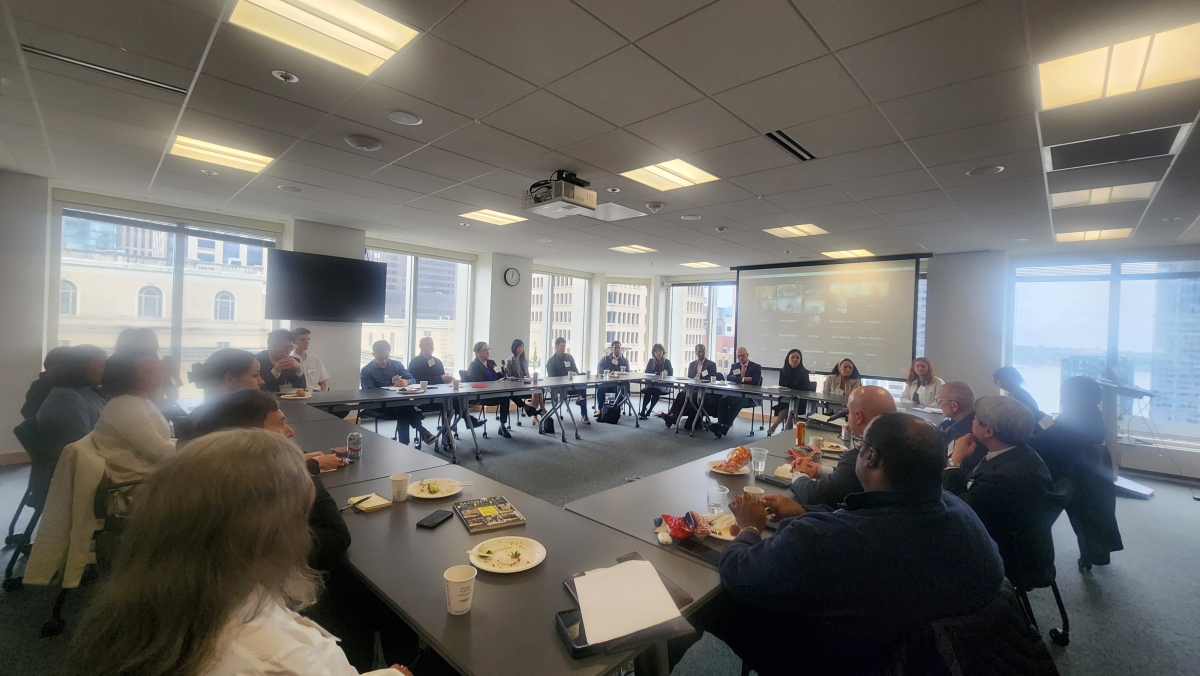Event Recap: Dynamics of U.S. Alliances in the Indo Pacific

On May 23rd, 2024, Asia Society Seattle hosted an executive roundtable discussion on the Dynamics of U.S. Alliances in the Indo-Pacific. The discussion featured Ambassador Michael Michalak, former Ambassador to Vietnam, and Monica Hardy Whaley, President of the National Center for APEC.
To begin the session, the panelists detailed the history of U.S. alliances and how they have been shaped by the U.S.’s evolving regional interests and rivalries. As the U.S.’s main strategic interests have shifted to the Indo-Pacific, the U.S. has begun pursuing alliance networks there. They then discussed APEC’s role in the U.S.’s alliance structures in the Indo-Pacific, specifically how the economic organization allows for Pacific Rim countries to forge connections and find consensus on common economic goals and concerns.
During the following moderated discussion led by Whaley, event guests asked about the U.S.’s efforts to expand its alliances in the Indo-Pacific. Speakers discussed how the opening of a NATO liaison office in Japan signaled Japan’s desire to be better integrated into strategic alliance networks. They noted that many Asian countries do not wish to pick between the U.S. and China, preferring to seek ties with both. As a result, the U.S. has pursued strategic and comprehensive strategic partnerships with countries like Vietnam to foster mutual understanding and benefits. Speakers highlighted the importance of ASEAN countries taking on a greater role in the region. Increasing tensions in the South China Sea are also likely to encourage ASEAN nations to think more about security issues, speakers noted.